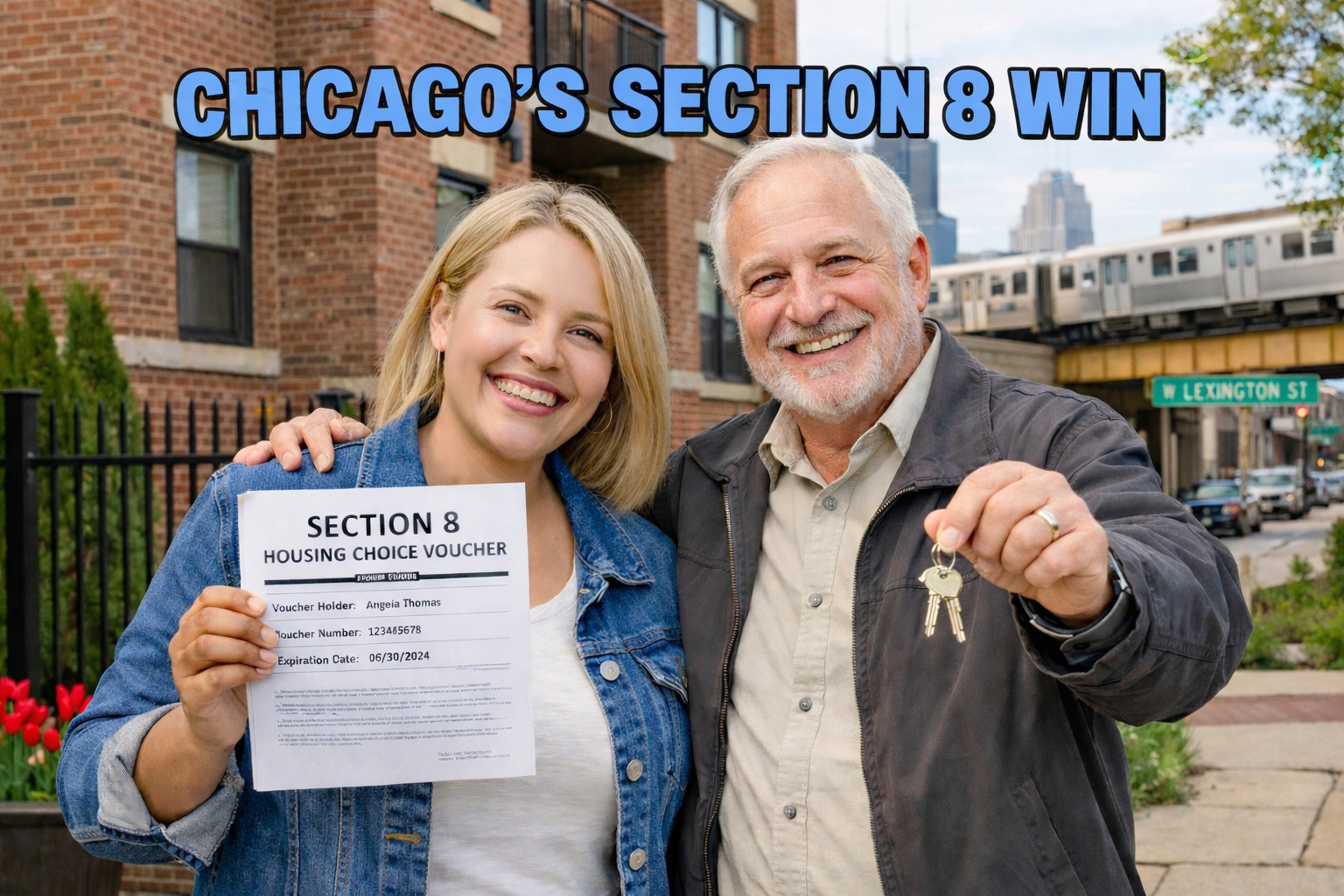
Author: Mark Ainely | Partner GC Realty & Development & Co-Host Straight Up Chicago Investor Podcast
The cost of housing in Chicago is higher than in some other cities in America, which makes it difficult for low-income individuals, and families alike, to afford rent. Whether you are a property owner in Chicago or someone looking for a place to live, chances are you’ve heard of Section 8, also known as Housing Choice Vouchers (HCV).
As a real estate investor in Chicago, we know you have questions about how the Section 8 housing program affects your properties. And we decided to share with you the most frequently asked questions (and answers!) that you might have about the Section 8 Program.
As a property management company in Chicago, we at GC Realty & Development, LLC, have experience working with Section 8 tenants and can explain questions that you–or your prospective tenants–might have about the program and how to utilize it with your properties.
How Section 8 Works in Chicago
- First things first. Before we go further, it is important to understand how Section 8 works in Chicago, and we break it down for you.
- The purpose of this program is to make sure low-income residents can find sanitary and safe housing within Chicago’s private market, using federal funds provided by the U.S. Department of Housing and Urban Development (HUD). All this with the purpose of ensuring that these residents can afford basic living expenses, as opposed to spending the majority of their income on rent.
- Illinois operates a Section 8 Housing Choice Voucher program that provides rental assistance to low-income residents in Chicago, as well as in other cities throughout the state.
- In Chicago, Section 8 tenants apply the same way any other tenant would–through the landlord’s application process. If and when approved by the landlord, a CHA representative will inspect the property to ensure that the unit meets basic housing standards.
- Throughout the duration of this agreement, Landlords must maintain their properties in accordance with the quality standards outlined by the HUD and consent to periodic inspections, as well as required audits.
- As of October 2013, private landlords with properties available for rent in Chicago, or anywhere in Cook County for that matter, are legally prohibited from refusing to lease to renters based on the source of income. Meaning that holding a Section 8 voucher cannot restrict a renter from being eligible to rent an apartment that qualifies under the program.
- Landlords, can, however, reject applications based on other factors unrelated to their Section 8 status. For example, if previous landlords cite problems with the tenant, including property damage or problems with other tenants, these can all be acceptable factors that contribute to the landlord rejection of a Section 8 applicant.
Section 8 Owner FAQ
How can I list my units for Section 8 renters?
You would list your property for rent just as you would if you were looking for a market tenant. You can list on specific locations online like Gosection8.com so your exposure to voucher holders is greater. When you locate a resident you will have to have the property inspected and the housing authority will have to make sure you have no unpaid property taxes due.
How much rent can I charge?
You can set the rental price to be whatever you want, although it must be reasonably priced compared to your other units. If the rent is too high, you may be required to lower your rent to meet the needs of low-income residents.
How much rent is subsidized?
After receiving approval, the renter can enter into a leasing agreement with the landlord. They will then pay an agreed-upon portion of the rent directly to the landlord, while the remainder of the monthly rental costs will be paid by the Chicago Housing Authority.
The CHA calculates the maximum amount of housing assistance allowable. It is generally the lesser of the payment standard minus 30% of the residents monthly adjusted income or the gross rent for the unit minus 30% of monthly adjusted income.
What are my obligations as a landlord?
The role of the landlord in the voucher program is to provide decent, safe, and sanitary housing to a tenant at a reasonable rent. The dwelling unit must pass the program's housing quality standards and be maintained up to those standards as long as the owner receives housing assistance payments. In addition, the landlord is expected to provide the services agreed to as part of the lease signed with the tenant and the contract signed with CHA.
What are the tenant’s obligations?
After CHA approves the unit and lease, the tenant signs a lease with the landlord for at least one year. The tenant may be required to pay a security deposit to the landlord. After the first year the landlord may initiate a new lease or allow the family to remain in the unit on a month-to-month lease.
What if I have problems with my tenant?
Dealing with problematic tenants who are Section 8 renters will be the same as dealing with any other tenant. Section 8 tenants are expected to comply with the lease and the program requirements, pay its share of rent on time, maintain the unit in good condition and notify the CHA of any changes in income or family composition.
Unpaid rent, damage to the property, or other issues will have to follow city regulations up to and including eviction.

 Vendor Portal
Vendor Portal

